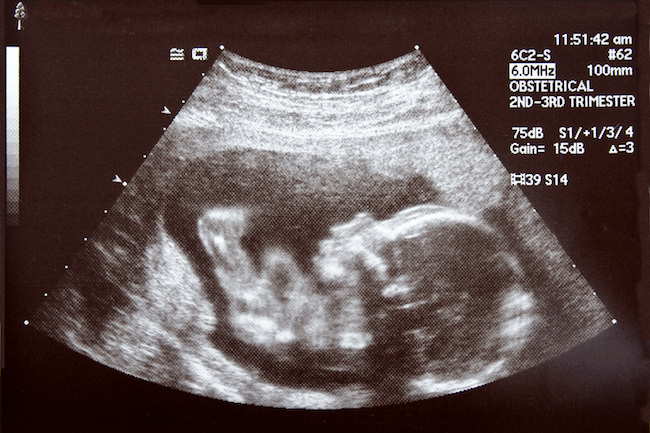Americans all across the country are sending a message to the U.S. Supreme Court: It’s time to end Roe v. Wade and protect unborn babies from abortion once again.
And they are doing so, in part, through the lawmakers whom they have chosen to represent them in their state legislatures. These lawmakers have introduced approximately 500 pro-life bills this year to protect mothers and unborn babies from abortion, according to the Los Angeles Times.
Arizona state Sen. Nancy Barto, a pro-life Republican, recently introduced legislation in her state to protect unborn babies with Down syndrome and other genetic disorders from discrimination. She told the Times that pro-lifers feel encouraged by the new conservative majority on the U.S. Supreme Court.
“There’s just a lot of hope out there on the pro-life side,” Barto said. “For a long time, we haven’t made a lot of progress. Everybody is seeing the possibilities now. It has emboldened states.”
Meanwhile, state lawmakers in Arkansas passed a complete ban on abortions in March with the express hope that it will persuade the Supreme Court to overturn Roe.
Please follow LifeNews.com on Gab for the latest pro-life news and info, free from social media censorship.
“I will sign [Senate Bill 6] because of overwhelming legislative support and my sincere and long-held pro-life convictions,” Gov. Asa Hutchinson said when he signed the law. “SB6 is in contradiction of binding precedents of the U.S. Supreme Court, but it is the intent of the legislation to set the stage for the Supreme Court overturning current case law.”
Other state pro-life bills include measures to prohibit dangerous telemedicine abortions, ban abortions after an unborn baby’s heartbeat is detectable or ban abortions that discriminate against unborn babies based on their race, sex or a disability. Still other legislation aims to inform mothers about the life-saving abortion pill reversal protocol and hold abortion facilities accountable to basic health and safety standards.
Mallory Quigley, spokesperson for the Susan B. Anthony List, said these pro-life bills send a strong message to the Supreme Court.
“We know the court is not immune to public opinion,” Quigley told the newspaper. “The more states are advancing these bills, the more it increases the demand for the Supreme Court to weigh in.”
Even the LA Times, whose editors recently argued in favor of abortion on demand without any limits, admitted that Americans have not fallen sway to the radical pro-abortion agenda that constantly is being pushed on them by Democrat leaders and the mainstream media.
“… public opinion on abortion has remained relatively steady for the last two decades,” the newspaper wrote. “Americans are more or less evenly split when asked by Gallup whether they consider themselves ‘pro-choice’ or ‘pro-life.’”
While the newspaper noted that “a consistent majority backs legal abortion in some circumstances,” polls consistently show that most Americans actually support strong limits on abortion – stronger limits than what Roe v. Wade and the Supreme Court currently allow.
A January poll from Gallup found that 51 percent of Americans say abortion should never be permitted, permitted only to save the life of the mother or permitted only in cases of rape or incest or if necessary to save the mother’s life.
A 2019 Hill-HarrisX survey also found that 55 percent of voters said they do not think laws banning abortions after six weeks – when an unborn baby’s heartbeat is detectable – are too restrictive.
The majority of Americans are making their voices heard through their local and state elected officials. A growing movement that began in Texas, 25 cities to date have passed Sanctuary for the Unborn ordinances to outlaw the killing of unborn babies in abortions in their municipalities.
At the state level, voters also have passed pro-life ballot initiatives by strong majorities in recent years. And more pro-life ballot measures are being considered in Kansas, Iowa and Kentucky this year. These initiatives would allow voters to amend their state constitutions to make it clear that there is no right to abortion or taxpayer funding for abortions.
Katie Glenn, government affairs counsel at Americans United for Life, said Kansans are working to pass a pro-life amendment to reverse a radical pro-abortion ruling that their state Supreme Court handed down in 2019.
“It came as a complete shock to most Kansans when in 2019 their state Supreme Court discovered this right to abortion that had never been eliminated in the 100-plus years of the Kansas Constitution being on the books,” she told the newspaper. “We saw a lot of lawmakers say, ‘Could that happen in our state?’”
Meanwhile, pro-life advocates and abortion activists are anxiously watching for the U.S. Supreme Court to make a decision about whether to hear a Mississippi case. Last summer, Mississippi Attorney General Lynn Fitch, the first woman to hold the position, asked the high court to uphold a state law that bans abortions after 15 weeks of pregnancy.
In 1973, the Supreme Court took away the states’ ability to protect unborn babies from abortion under Roe v. Wade, and instead forced states to legalize abortion on demand. Roe made the United States one of only seven countries in the world that allows elective abortions after 20 weeks.
The massive number of pro-life state bills coupled with polls and the pro-life state lawmakers whom voters elect to represent them all point to the fact that Americans want the country to restore unborn babies’ right to life.








